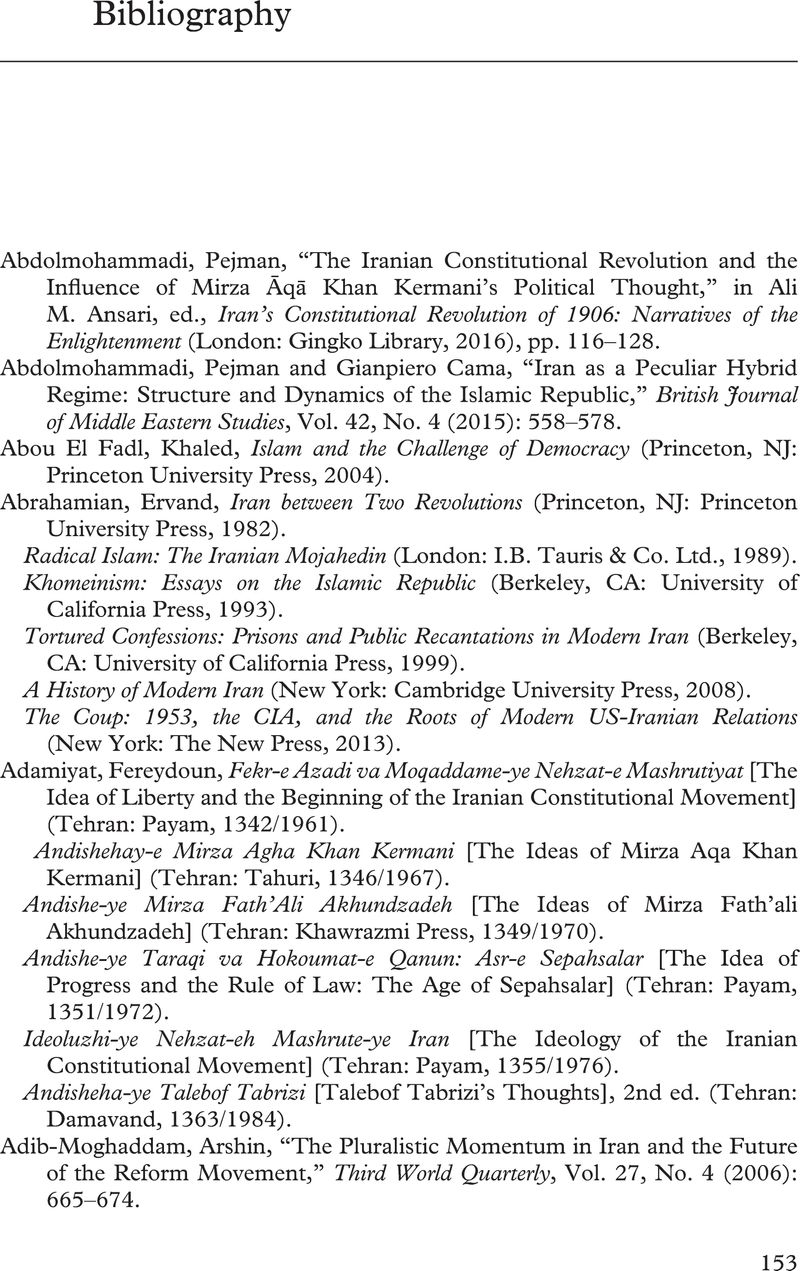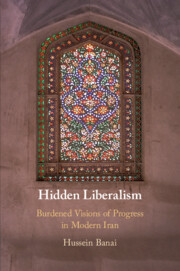Bibliography
Published online by Cambridge University Press: 26 November 2020
Summary

- Type
- Chapter
- Information
- Hidden LiberalismBurdened Visions of Progress in Modern Iran, pp. 153 - 170Publisher: Cambridge University PressPrint publication year: 2020

